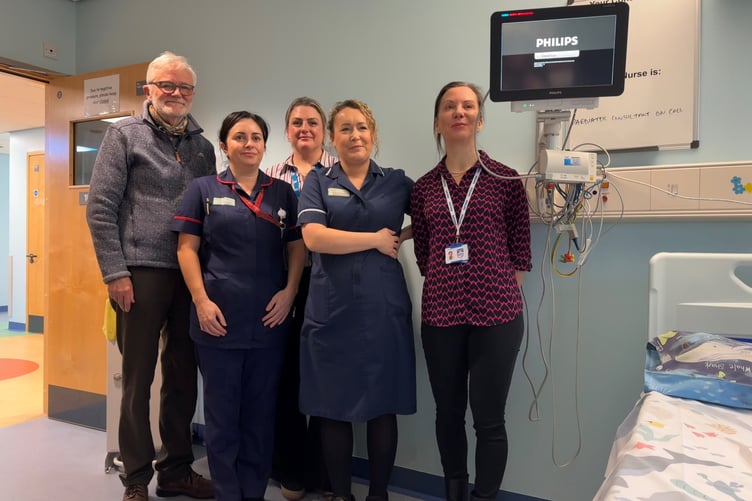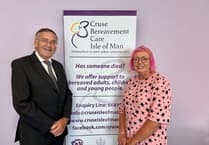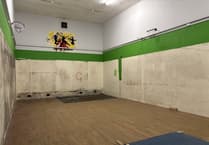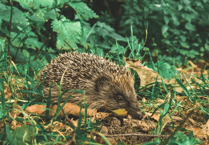The money, donated by the Henry Bloom Noble Healthcare, has been used to pay for new monitoring equipment to be installed at Noble’s Hospital Paediatric Ward.
The funding has enabled the facility to introduce real time monitoring from a screen at the nurses’ station on the ward, allowing staff to keep an eye on several different patients, in different rooms, all at once is the gold standard.
It means that nurses can be made aware of any change in a patient’s status and, when necessary, respond immediately.
The Paediatric Ward at Noble’s Hospital has for a number of years had two high dependency beds for sicker children, equipped with monitors within the rooms.
Previously when an alarm went off, which could simply be due to a child moving, a nurse needed to enter the room to assess what was wrong.
Due to a sharp increase in the number of young respiratory patients admitted to the ward at certain times of the year, additional high dependency beds are needed at times.
Current staffing levels on the ward mean the facility could not increase the high dependency bed numbers without an enlarged and enhanced monitoring system.
The ideal solution was to equip a further two rooms with monitors and connect all four room monitors to a central monitor positioned at the nurse station in the ward.
This would enable a nurse sitting at the station doing paperwork to simply look up at the monitor and assess immediately what is going on and in which room.
Ward manager Sarah Marshall had such a system at the top of her wish list.
She says: ‘I’ve been here 17 years and it’s been something that we’ve been desperate for for a long time.
‘During winter months, we see a significant increase in children being admitted acutely unwell with viruses and bacterial infections, these children often requiring high dependency nursing care.’
Noble’s Paediatric Ward is partnered with the Paediatric Critical Care Society (PCCS), a UK wide organisation which has, as one of its aims, setting national standards for high quality care.
Sarah said: ‘In the last six months we have been working collaboratively to ensure we meet the standards of the PCCS, assessing what standards we meet and identifying where the gaps were.
‘We’ve known for a long time that this equipment has been essential to the ward.’
She had put a request to Jenny Davies, business manager for Integrated Women, Children and Families, but unfortunately it was beyond the hospital’s current budget.
It did, however, meet all the criteria for a grant from the Henry Bloom Noble Healthcare Trust.
The Trust’s ethos is not to buy replacement equipment but to buy enhanced systems that offer real benefits to patients and better support the work of Health Care Professionals who are looking after them.
So, in October last year, when Jenny reached out to several charities who might help, the Trust came back immediately with a reply: an unequivocal ‘yes’.
Not only that, but the Trust’s medical assessor and trustee, Malcolm Clague FRCS, told Jenny: ‘If we’re going to do it, we need to do it now, to help cope with the extra pressures this winter might bring.’
Accordingly, through Sarah and Jenny’s determination and with a grant from the Trust, the New Year has seen the installation of a state of the art Philips Intellivue Information Central Monitoring System.
Sarah says: ‘Now that we have the two additional beds that we can use as high dependency, it’s going to really help us keep children safe on the ward.’
Very sick children with respiratory conditions are treated with the use of high-flow oxygen therapy, a non-invasive system that delivers warmed, humidified, oxygen-enriched air to patients. The new monitoring system will monitor their oxygen saturation levels, so nurses will know exactly when the high flow is needed.
It also checks their heart rate and blood pressure and it gives a heart trace for cardiac babies that alerts nurses to any possible deterioration in their condition. The results can be printed out so that, if a doctor has to be called to the ward, there is a record to look at immediately on arrival.
The monitoring will also reassure nurses at times when they are not needed so urgently, as Sarah explains: ‘Sometimes a buzzer would go off and it was just a baby moving but the nurse would have to stop what they were doing and go and check. Now they can see it on the central monitor and know it is just the baby moving or, alternately, they can see that the baby needs oxygen and they can go straightaway and attend to that child first.’
It is obvious just how much it means to Sarah to be able to offer this extra level of care to her patients, and support to her nursing staff.
Jenny sums up both their feelings when she says: ‘It’s fantastic, it really is: we are so grateful to the Trust.
‘We knew it had to happen, we’ve been asking for this equipment for so long, but the speed with which this has gone through, and the fact that we’re not going to have to go another winter without it, is amazing.
‘If only it was always so easy – that would be lovely.’
Malcolm Clague, the Trust’s medical assessor and a Trustee, added: ‘We are thrilled to have been able to help the Children’s Ward procure some additional equipment to assist with the provision of care for sick children on the island.
‘It will not only aid with care during outbreaks of viral respiratory diseases over the winter but assist children experiencing seizures to be better monitored and assessed and also facilitate the return of those who have undergone heart surgery across to convalesce here sooner with their family near them.’
Established in 1888 by renowned philanthropist Henry Bloom Noble, the Trust was set up to improve the quality and availability of healthcare services on the Isle of Man.




